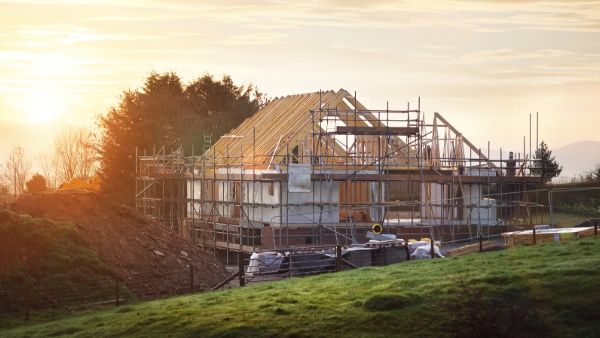Author
In November Lord Justice Coulson and Lady Justice Rose gave judgment in the development dispute case of Farrar and another v Rylatt and others [2019] EWCA Civ 1864.
The appellants had been disappointed by a decision in the High Court that oral discussions between the appellants and respondents did not amount to either an oral profit share agreement, or an oral express trust; and that (concerning a different agreement) heads of terms marked “Subject to Contract” did not morph into a binding agreement. The Court of Appeal agreed that the appellants should remain disappointed.
The alleged profit share agreement, whether or not it included a trust, was a complicated arrangement, which both courts doubted could have been agreed by these parties orally, and at such a high level. Further, the appellant had not been able to identify and plead clearly enough when, and where the oral agreement was reached, or what was said.
The use of the label “Subject to Contract” to avoid a binding agreement, was given a high degree of respect at the outset, with the Court then considering carefully at each stage, since the heads of terms, whether the parties had started to perform an agreement, or otherwise by conduct agreed to be bound by it, reaching the decision that they had not.
The Farrar v Rylatt case
This is a decision which bears all of the hallmarks of a development dispute; there is usually a profit to be split, or a loss to be apportioned, a number of incomplete documents, some alleged oral agreements, a number of parties, including limited companies, which are often wholly owned by their principles, and people building stuff.
In this instance the claimants, and then appellants were Neil Farrar (referred to in the judgment as Neil) and his company Farrer Construction Limited (Farrer). The defendants and later respondents were James and Kevin Rylatt (referred to in the judgment as James and Kevin), and their limited company, JKR Property Developments Limited (JKR).
The dispute concerned two development projects, in each instance the defendants had purchased the land, and the claimant was the builder developing it.
Hazel Grove development
The first project, where the arguments were for an oral profit share or trust of land, involved a development site purchased by James and Kevin, referred to as Hazel Grove, for £50,000. James and Kevin agreed to pay either Neil or Farrer £97,000 to build a house at Hazel Grove. It appears not to have been resolved who was supposed to be paid, or in fact who was paid, but agreed that someone was paid.
The development was purchased in the end for £190,000, meaning that (in broad terms) a profit of £40,000 was up for grabs.
Oral agreement
Neil and Farrer sought to argue that there had been an agreement that there had been an oral agreement that the proceeds of the sale of Hazel Grove would be held on trust for Neil, and James and Kevin, at 50% each side, or that there was an oral agreement that the proceeds of sale would be split in that way.
The Judge at first instance, and then Lord Justice Coulson giving the leading Judgment were unimpressed with the oral evidence, and noted that there was little documentary evidence in support of the claim. There was also universal judicial agreement that the idea of parties reaching agreement orally on a complex declaration of trust was unlikely, given that they were probably good builders, but unlikely to fully understand the application of trust law in those circumstances.
The Barns development
The other property, known as the Barns, was owned by Neil. The parties appear to have agreed in principle to develop the property together, pursuant to heads of terms, drawn up by a chartered surveyor, bearing the heading “subject to contract and without prejudice”.
The heads of terms included that James and Kevin would purchase the site, Farrar would build out the project under a JCT contract for a fixed sum of £300,000, which would be paid by James and Kevin, in return for which the net profit of the development would be split, 50% to Neil, and 25% each to Kevin and James.
The heads of terms were not signed, but were a common document between all of the parties.
Farrar commenced work on the barns, then the site was conveyed to JKR (not James and Kevin personally), and a JCT Contract between Farrar and JKR (again not James and Kevin personally) was entered into, with the heads of terms annexed to it.
There was a dispute over the final payment for the building works, but that appears to have been resolved, and some of the properties had been sold, at least by the point that the Court of Appeal heard the matter.
Court of Appeal
The Court of Appeal preferred to look at three types of agreement (land sale, building contract, and profit share) which the parties might have entered into. It then considered various points at which such agreements might have become binding on the parties: the point at which the heads of terms were completed, the date of sale of the land and the date of entering into the JCT.
Neither Court found any significant evidence of performance of any of the terms, indicating that the parties intended to be bound by the heads of terms, despite entitling them as subject to contract.
The Court of Appeal agreed with the trial judge that the heads of terms were unlikely to amount to a binding agreement to sell land, given that the agreement fell short of the stringent provisions of section 2(3) of the Law of Property (Miscellaneous Provisions) Act 1989, and that the term that the property was transferred to James and Kevin personally had not been reflected in reality.
Both Courts also drew inference from the fact that the only contractual emanation of the heads of terms was the JCT, indicating that if the parties had intended upon a binding agreement for the rest of the terms they would have entered into one.
“Subject to contract”
Both Courts also attached much importance to the subject to contract tag. The Court of Appeal pointed out the authority of Regalian Properties PLC and another v London Docklands Development Corporation [1995] 1WLR 212 which provides that: “…in the absence of special facts (which the judge explained by reference to a number of separate conditions which needed to be fulfilled) the deliberate use of the words “subject to contract” had the usual effect so that, in the event of no contract being entered into, any resultant loss must lie where it fell.”.
The special circumstances in this case might have been substantial performance of the terms, but in this case, having carefully analysed the chronology of events, the Court could not find any performance which amounted to a special fact.
“Without prejudice”
Incidentally, the Court of Appeal pointed out that the use of the label “without prejudice” did not appear to be appropriate in these circumstances. The parties were not at that time in a dispute, and the use of the label added nothing except confusion. There will be times where it would be appropriate to use the label on heads of terms, but normally these would be times when there was a dispute in contemplation, and the parties did not want to water down their evidence by indicating they were willing to settle.
Practitioners should take comfort from this decision, as it indicates that heads of terms which are appropriately titled, will be construed as working, not binding, documents. On the other hand, no doubt James and Kevin will have incurred costs which they have not been able to fully recover from Neil, and as such, perhaps they might (with the benefit of hindsight) have been better to clearly indicate to Neil that there were no special deals.
Click here to read a transcript of Farrar and another v Rylatt and others


